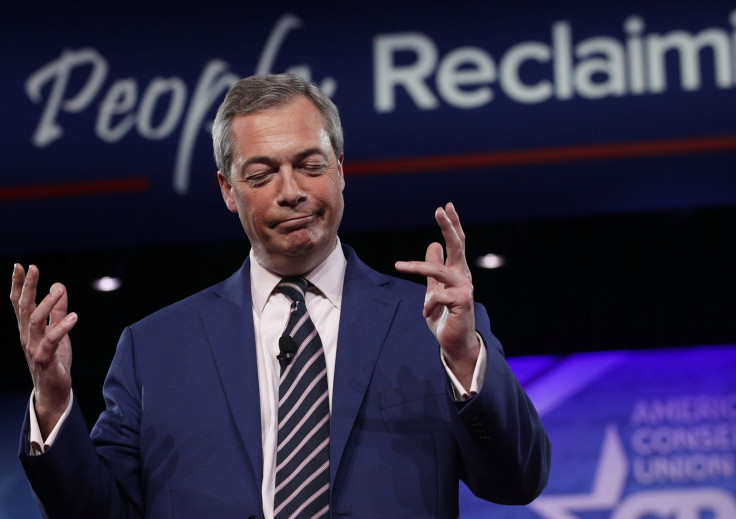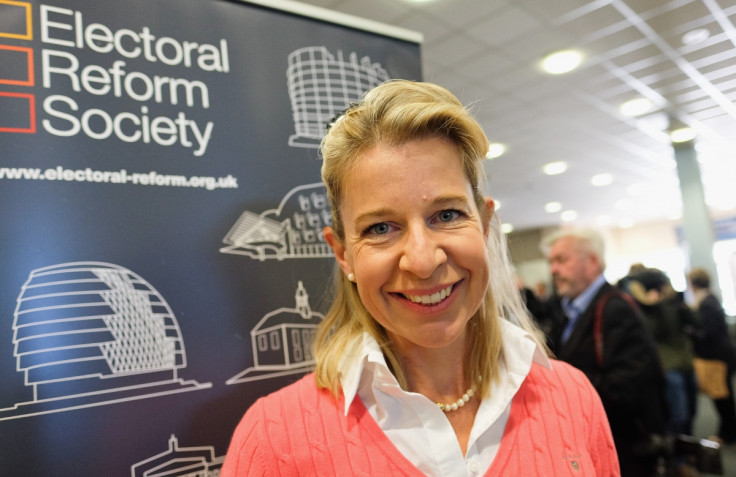Katie Hopkins and Nigel Farage tell America that Britain is scared and divided - we are not
Both have tried to break into the US by selling a false image of the UK to right-wing media.
For some people, these islands seem just too small to satisfy their ambitions. Not content with Britain, many want to be known around the world; they want to be famous in a new and different way.
This sentiment is fairly common in entertainment, where commercial concerns predominate and larger markets appear more attractive. And there is nothing wrong with bands or comedians, flushed with new-found success and the beginnings of local fame, trying to make it in America. Indeed, it's almost appealing. In Britain we can admire the spirit of those who cross the Atlantic with such large aspirations and such small chances.
The same is not true in political terms. British commentators who make a bid for fame on US cable news are less appreciated. This has something to do with the sense of selling out such people attract. But this also relates to the distortions they inevitably cultivate and propagate in the process.
Examples abound, but most relevant, at least in the past week, are Nigel Farage and Katie Hopkins, both of whom are regulars on American TV news, purporting to provide a British and possibly European perspective.
Farage, the former leader of Ukip and a sitting MEP, has become a Fox News contributor, and revels in his closeness, and part-time physical proximity, to President Donald Trump. In doing so he has lost all independence, gratefully subsuming himself within this larger campaign. He is an unofficial, and presumably unpaid, spokesman, a man who can be relied upon to give the president's perspective.
Hopkins may well merely relish the attention.

These two, authentically accented (though Farage's 't's become 'd's a little too easily on US TV) and often broadcasting from London, become something of a window into British national life for American audiences. What they say therefore matters.
They make much of their patriotism, at least to domestic audiences. But last week, both of these ostentatious and ostensible patriots propagated a suggestion that Britons were cowed, afraid and divided in the aftermath of the terrorist attack in Westminster. Hopkins used those very words.
This does not seem to be accurate. The attack was relatively minor and one had been expected for many years. Ordinary life was very briefly disrupted in London, but there is no mass panic. We hardly live in fear.
While being prompted with leading questions and charged with giving credence to the perspectives of hosts, Farage and Hopkins can participate in an intellectual masquerade.
This example is fairly minor. More interesting are the reasons why Farage and Hopkins and their like might say such things.
Both are obviously attempting to make names for themselves in America. This requires adaptation, a matter of style and substance. British media entrepreneurs adopt a new pose. They must fit into the political climate in the States, which has become more distinct, and possibly cruder and more vulgar, than it ever used to be, all thanks to the election of Donald Trump. If these media arrivistes deviate from what is expected, one can imagine their appearances dwindling. The bookers will fail to call, and this implied threat focuses the mind.

Both Hopkins and Farage deal almost exclusively with Fox News. This creates its own distorting effects, for both participants and viewers. While Fox is not wedded to Trump, some of its presenters are, notably Sean Hannity. Other Fox personages relish the way in which Trump has changed the political and cultural landscape. His coinages are commonplace; debates are orchestrated on his terms.
While being prompted with leading questions and charged with giving credence to the perspectives of hosts, Farage and Hopkins can participate in an intellectual masquerade. They can add apparent authenticity to the prevailing impression of Europe which is painted for right-wing American audiences.
Nigel Farage has called for his own 'total and complete shutdown' of Muslims entering the UK.
For many, the continent is a decadent place, sunk deep in debt, unwilling to pay for its own defence, overloaded by immigrants, particularly Muslims; riots in European countries are covered in detail. They are all seen to be linked, not the consequences of different situations in distinct countries – the product of internal dynamics – but rather the result of systemic problems affecting the continent as a whole.
To listen exclusively to right-wing American discussions of Europe, one would see it as a wonder that the continent is keeping the lights on; one would be impressed to learn that Europe is not sinking slowly into the sea.
Britain's impending exit from the European Union is seen as a step in the right direct by some, an opportunity to sever the links between this country and a continent collapsing under the weight of its corrupted civilisation. This explains Farage's presence. But not why, as he did last week, the man echoes Stuart Varney's sentiments about ending Muslim immigration quite so rapidly and enthusiastically.
The parallels with Trump are unmistakable: Farage, free from the decorousness of the British media, has effectively called for his own "total and complete shutdown" of Muslims entering the UK.
This could be put down to the aforementioned: trying to establish a personal "brand" in a new market. But this goes deeper. When one decides that one deeply dislikes one's own society and sees the rot appearing in everything, one can ally with anyone who appears to share that view, no matter who they are. This makes it easy to impugn the Old World on the television sets of the New.
Farage is famous, and was mocked in Britain for many years, for attributing many things, from NHS waiting times to traffic jams which prevented him from being on time for an interview, to "uncontrolled mass immigration". Evidently this has changed the way he sees the country; it is not the place he can romanticise and idealise, and describe with the overwrought sentiment marshalled by fellow MEP Daniel Hannan, for example. Instead the Britain he and Hopkins describe is a sad, miserable place, a nation divided and fearful.
Not even winning the referendum has enabled Farage to shake this miserablist mentality.
Hopkins is as vulgar as Trump; Farage shares his professed politics. But neither would have quite as easy a time agreeing with him and his proxies if they did not dislike so much of what characterises modern Europe, and modern Britain.
James Snell is a British journalist who has written for many international publications. Follow him on Twitter: @James_P_Snell.
© Copyright IBTimes 2024. All rights reserved.






